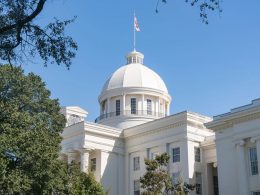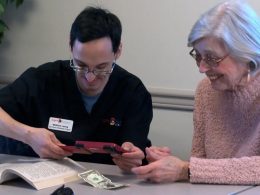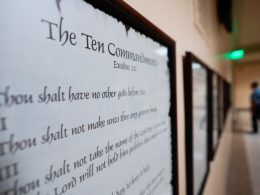Dothan, Ala. — Greene County, Alabama, has been home to legal parimutuel betting since 1973, thanks to a local constitutional amendment. Now, with new legislation proposed by state Senator Bobby Singleton (D-Greensboro), the county’s gambling landscape could see significant changes, aiming to bring in much-needed revenue for the area.
Singleton’s bill, introduced in the Alabama Legislature, would allow for the expansion of gambling in Greene County by legalizing historical horse racing at two local venues. The proposal comes as a response to concerns about the potential decline of the county’s gambling revenue. Singleton emphasized that, for Greene County, the lights of parimutuel betting are some of the few remaining sources of financial support.
“If all the lights go out in Greene County on gaming, these are the only lights that can be on if you can picture that,” Singleton said, referencing the importance of gambling revenues to the county’s economy.
The proposed bill is seen as a way to keep the flow of revenue alive, especially in the face of ongoing debates around state-wide gambling legislation. Singleton noted that while a recent statewide gambling bill failed to pass, it would have likely led to the cessation of all local gaming operations, including parimutuel betting. His bill, however, offers a path forward to preserve the gambling options in Greene County, regardless of future statewide regulations.
State Senator Greg Albritton (R-Atmore), who has long advocated for a comprehensive state gambling package, expressed concerns about the growing number of local constitutional amendments allowing gambling in specific areas. Albritton, who pushed for a bill in 2025 that would have legalized sports betting and established a state lottery, warned that without state oversight, more local amendments could lead to a fragmented and unregulated gambling market.
“This is going to allow sports gaming to come in completely unregulated and uncontrolled,” Albritton argued. “It’s going to allow more of these entities to spring up and become legal through these local constitutional amendments.”
Albritton’s concerns center around the idea that as more local amendments are passed, gambling in Alabama could become increasingly difficult for the state to regulate or benefit from. While Singleton’s bill is focused on Greene County, Albritton’s broader vision calls for state-level control, ensuring that revenue from gambling is managed and distributed in a way that benefits the entire state.
For Singleton, the goal is clear: to generate more funds for Greene County, which could be used to support critical services such as education, healthcare, and infrastructure. “With this bill, it’ll give us an opportunity to bring that revenue back up, so that we can be able to do more cost sharing with more entities in the county,” Singleton said.
The bill is currently being reviewed in committee for the second time in the House, with Singleton hoping for a favorable outcome that will allow Greene County to continue benefiting from gambling revenues. However, the debate over gambling regulation in Alabama is far from settled, with both local and statewide interests vying for influence.
As the legislative session progresses, it remains to be seen whether Singleton’s bill will pass or if Albritton’s vision of a statewide regulatory framework will take precedence. For Greene County, the outcome could have lasting implications on its economic future and its ability to fund key public services.









